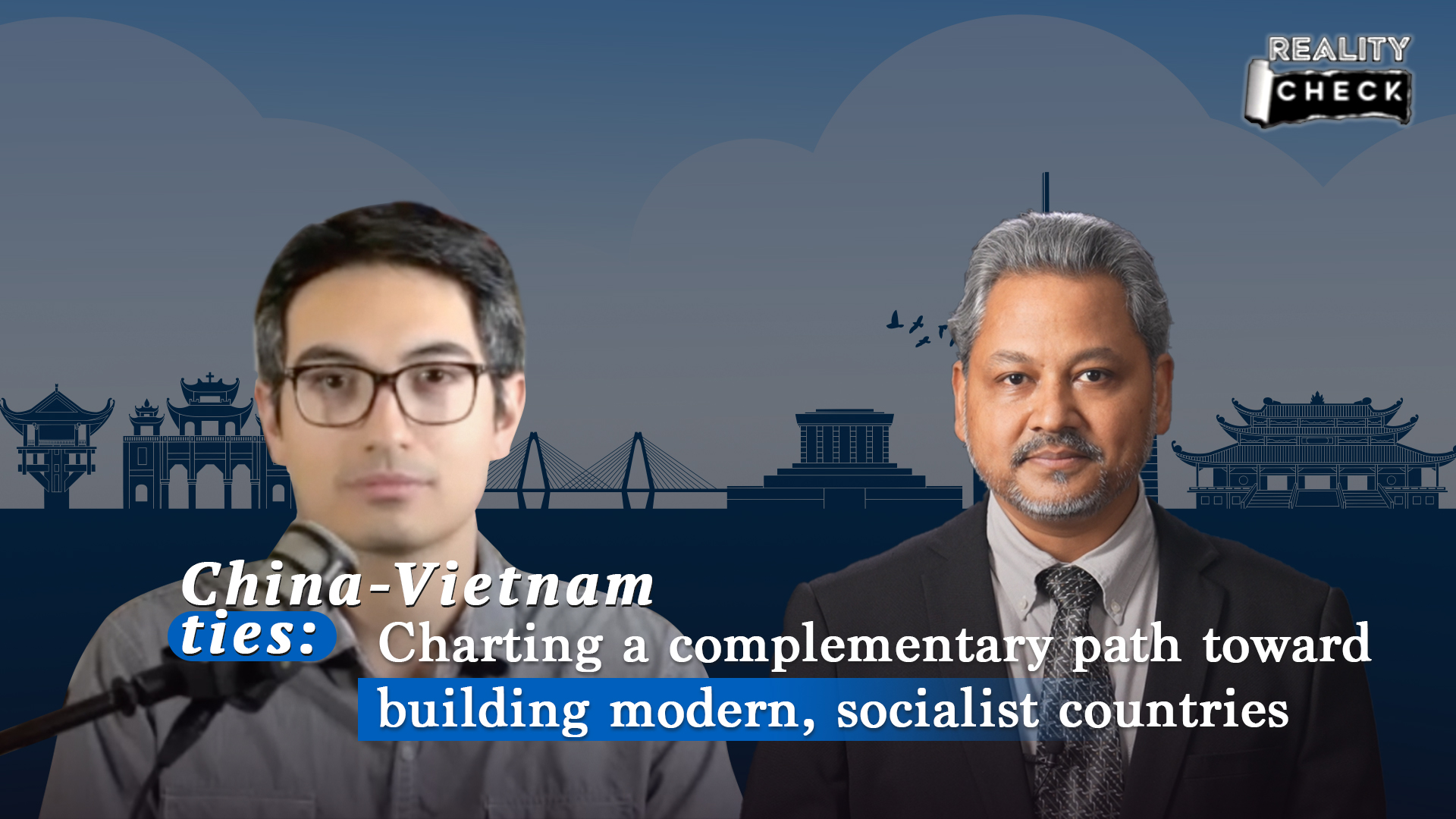Editor's note: Chinese President Xi Jinping's state visit to Vietnam from December 12 to 13 marked a new milestone in the relationship between the two countries. Both sides pledged to build a China-Vietnam community with a shared future that carries strategic significance, thus ushering in a new stage and injecting new impetus into bilateral relations. In the process, the visit also dispelled the Western myth of competition between the two Asian neighbors while reinforcing common cultural and historic ties. CGTN's Sr. International Editor Abhishek G. Bhaya spoke with U.S.-based journalist and geopolitical analyst Danny Haiphong to get a perspective. The views expressed in the video are his own and not necessarily those of CGTN.
Edited excerpts:
CGTN: A popular narrative in the Western media about Vietnam suggests that there is a shift in the global supply chain from China to Vietnam. However, China remains Vietnam's largest trading partner and significant investor and officials on both sides have asserted that China and Vietnam are actually cooperating and complementing each other within the global supply chain. Which version is closer to the truth in your opinion?
Daniel Haiphong: It's the latter. It's complementary. Between China and Vietnam, the competition just does not really exist because each country is in its own particular stage of development. China has had more time, and has had certain advantages – historically, politically, economically – that Vietnam just hasn't had. Vietnam is only about three decades out from a total sanctions campaign after a massive decades-long war – first the United States but before that, France – which left them devastated without any infrastructure, so to speak.
While these two countries share very common histories of foreign interference, and China has been able to develop higher value-added goods; it has been able to enter into the supply chain in a much different way than Vietnam. While Vietnam's growth is very real and I saw that for myself that it is very real. The economy is very robust, and it's very successful. However, because Vietnam is still at a stage of underdevelopment, below that of China's, that means that what China has to offer indeed complements Vietnam and what Vietnam has to offer indeed complements China.
When I was in Vietnam, I noticed that there was a huge need for transportation and infrastructure development. And guess what, when [the leadership of] these two countries were meeting during [President Xi's] state visit, that's exactly what they were talking about: how to increase not only Vietnam's capacity but the linkage between the two countries when it comes to the rail system because that will allow for both countries to benefit from their cooperation; to increase trade by a massive amount and that is the goal here. The goal here is to build each other up; it is not to take each other down.
And Vietnam has a lot that it could benefit from better relations with China and China can also continue on its path of building a modern socialist country with what Vietnam has to offer. And that is only the beginning really, but it is indeed a possibly lucrative and complementary relationship that is years in the making and now has taken a huge leap during this state visit.
CGTN: As both China and Vietnam are modern socialist countries, what elements from the Chinese governance model and political system do Vietnam see as relevant and important to its own system? Can you possibly provide some examples of specific areas where the two countries are cooperating in terms of governance and political practices?
Daniel Haiphong: Vietnam and China both are led by incredibly popular Communist parties. While they're different in form and of course, match their respective cultural, national, economic and political characteristics of each country, the Communist Party of Vietnam and the Communist Party of China, they do share a paternal bond because they're both Communist parties following the path of Marxism toward a modern socialist and indeed, as outlined in both constitutions, a Communist world that sets the common goal that they share.
Now, what's very interesting is that because both countries are led by Communist parties, the way that governance is done is different than in the United States and the collective West. There is an emphasis on a whole process of democracy where people are not just involved in the party, but they're involved in all aspects of society, and that the emphasis is on quality leadership.
This state visit really just scratches the surface of what has been building over the years. China and Vietnam being neighbors and having so much that each can give to the other, it only makes sense that these relations will strengthen and that the Communist parties of both countries will continue to grow stronger bonds as the years move forward and this visit by Xi Jinping is a huge step in that direction.
(If you want to contribute and have specific expertise, please contact us at opinions@cgtn.com. Follow @thouse_opinions on Twitter to discover the latest commentaries in the CGTN Opinion Section.)


